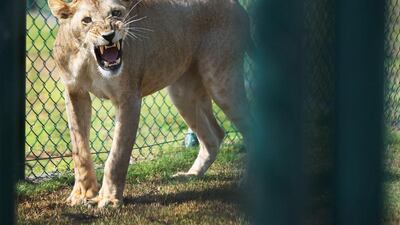DUBAI // Online sales of endangered wild animals appear to be decreasing in the UAE, an international survey has found.
The International Fund for Animal Welfare (Ifaw) survey investigated trading through 280 open-source websites in 16 countries, including the UAE.
While animals and animal parts worth an estimated Dh1.48 million were being traded online in the UAE, activity seems to have decreased as a result of an intensified government response to the problem, said Dr Elsayed Mohamed, regional director for the Middle East and North Africa at Ifaw.
There were 122 advertisements about the sale of wild animals and animal parts on UAE sites over the survey period, March 10 to April 20 this year. In a similar study carried out in 2012, 796 advertisements were discovered.
Dr Mohamed said in 2012 the Ministry of Environment and Water removed some adverts and blocked some websites.
The Government also issued ministerial resolution number 346 for 2012 banning the personal and commercial import of wild animals.
Of the 122 latest ads, 120 concerned the sale of live animals, mostly exotic birds. There were eight ads for the sale of primates, four for large cats and birds of prey, and three for antelopes.
Among the UAE ads was one for the sale of a live cheetah priced at US$18,000 (Dh66,114).
Big cats are sought after by people – some of whom keep them as pets without being able to care for them properly.
Many end up at shelters such as the Abu Dhabi Wildlife Centre.
For the first time, the survey team discovered many ads for rare animals that were found to be fraudulent.
“Here in the UAE, many ads related to the UAE were just a scam,” said Dr Mohamed. “This is one of the surprises we found this year. In 2012, we did not notice this.”
Besides the UAE, online trading in Kuwait, Bahrain, and Qatar was also investigated. Altogether, there were 144 ads, offering 245 specimens.
An additional 704 advertisements were found to be fraudulent.
The survey did not focus on what is known as the dark net – online sites accessible only to registered users. Social media and forums where wildlife was offered, were also not reviewed.
The report, titled Wanted – Dead or Alive, Exposing Online Wildlife Trade, discovered that 33,006 rare animals and animal parts were traded via about 9,482 advertisements in the 16 countries covered.
The value of the animals and products advertised was put at a minimum of US$10.7 million.
vtodorova@thenational.ae

